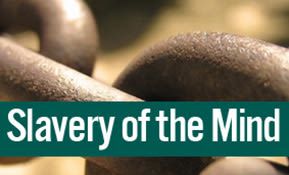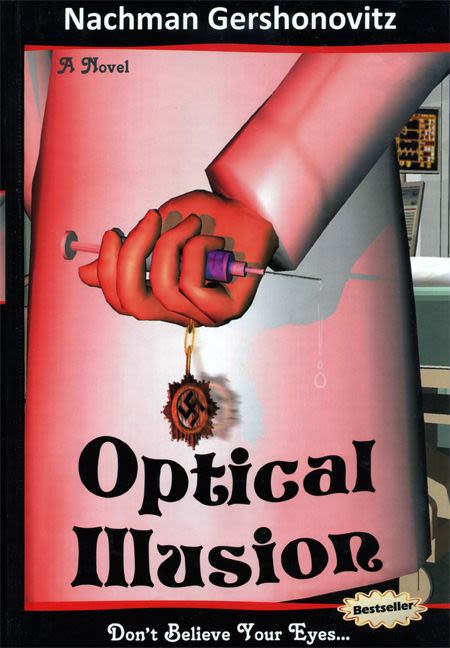
Stop Crying!
The exodus from Egypt illustrates a pattern that continues throughout the Torah: every time life deviates slightly from the comfort zone, people begin to cry and complain.

Translated by Rabbi Lazer Brody
Stop Crying, Part 1
Let’s take a look at what transpired during the first Geula, the redemption from slavery in Egypt, from the time our people left the land of Egypt until the time they entered our promised Land of Israel.
First of all, Hashem has already rained ten plagues on the heads of the Egyptians, one more miraculous then the next. An Israelite and an Egyptian would sit at the same table, but there was water in the Israelite’s cup while there was blood in the Egyptian’s cup. An Egyptian would be trapped in total darkness, but his Israelite neighbor enjoyed full daylight. Hashem’s Divine providence was so obvious that even the world’s worst idolators – Pharaoh’s witchcraft priests – cried out that the hand of The Lord is upon them. Hashem finally does a highly sophisticated surgical attack on Egypt where every Egyptian firstborn is struck dead. Even Pharaoh can no longer deny Hashem, and as the only surviving firstborn in Egypt, is really worried and chases the entire People of Israel out of Egypt.
The Midrash tells us that where a single slave couldn’t escape Egypt’s iron curtain that was fortified with heavyweight witchcraft, two million Israelites now walked to freedom in broad daylight, having seen with their own eyes the magnificent way that Hashem destroyed Egypt’s idols and ultra dark-side powers of impurity.
The Children of Israel reach the banks of the Red Sea. Despite his many scars from recent weeks, Pharaoh regrets his decision to free the Jews and pursues them with his best strike forces mounted on chariots. The Jews see the approaching Egyptians, panic, and completely forget all of Hashem’s recent miracles. People start yelling at Moses (Exodus 14:11):
“Are there no graves in Egypt that you’ve taken us here to die in the desert? What have you done by taking us out of Egypt?”
This is an example right out of the Torah of the classic short memory. People are yelling at Moshe and at Hashem – because when you yell at the tzaddik, you’re yelling at Hashem – “What have you done for me lately?” In the shortest time, they’ve forgotten the plagues and the miracles. They forget how they cried, yelled, screamed, and complained to Hashem about every day of slavery. Hashem redeems them from bondage, and once again, they’re crying.
Imagine thousands and thousands of people yelling and complaining at Moses. We start to see a pattern in the Torah: every time life deviates slightly from the comfort zone, people begin to cry and complain. All the tribes begin forming ad-hoc grievance committees against Hashem and Moses. Like a bunch of cry-babies, they whine, “Why did you take us out of Egypt? Who asked to leave? Why did you get us into trouble with Pharaoh?” And a million more complaints…
What do we learn from the pattern of Hashem’s repeated kindnesses and miracles as opposed to Israel’s repeated crying and complaining? The answer is simple – if a person doesn’t work seriously on character improvement, he’ll never change. It doesn’t matter if a person sees the greatest supernatural miracles with his own two eyes – if he doesn’t work on himself, he’ll be spiritually blind as a bat. He sees Hashem’s hand save him from the Egyptians, when according to the natural course of events there was no way of escaping their sharp swords, but five minutes later forgets all about it. How? That’s what happens when a person doesn’t work on himself and strive to improve.
One of the young men in our Yeshiva saw an outright miracle that saved his life. He wrote it down in a little notebook and now he thanks Hashem for it every single day. So what’s the difference between this young man and the complainers? He works on himself. He strives to improve daily. He does teshuva every single day and talks to Hashem for at least an hour a day. He opens his eyes and pays attention to all of Hashem’s blessings. For that reason, he never complains and is always happy.
Think a little bit more about the generation that left Egypt. They received Torah on Mount Sinai! The saw Hashem sound-and-light show with their own eyes. They heard Hashem speaking to them face-to-face. Look who their Rebbe was – Moshe Rabbenu – the same Moshe who Hashem revealed Himself to and who learned Torah directly from Hashem’s mouth! Yet, they still didn’t change. It doesn’t matter if Moshe Rabbenu is your rebbe and you see Hashem’s archangels staring you in the face, while Gabriel blows the trumpet and the sky is on fire. If you don’t work on yourself, none of this will have any impression on you and you won’t change.
Take the average Yeshiva guy that’s about to be married. He’s been learning Torah for nearly twenty years. After twenty years of Torah learning, you’d expect a person to be an angel. But, if he hasn’t been working on himself and trying to improve his character, his Torah might be channeled to the wrong place. His Torah might be making him more arrogant because he’s doesn’t pray for his learning, he doesn’t do daily self-evaluation, and he doesn’t spend an hour a day in personal prayer. That’s how people can learn Torah for so many years and still remain selfish, depressed, and ill-tempered. They simply don’t work on themselves so they never learn emuna. By the way, Torah without emuna is bad news. When a person doesn’t work on himself, he stays stuck in the mud with all his bad habits – nothing changes.
From the time of creation to this day, the biggest miracles in history occurred when our forefathers were in the process of leaving Egypt.
To be continued.











Tell us what you think!
Thank you for your comment!
It will be published after approval by the Editor.